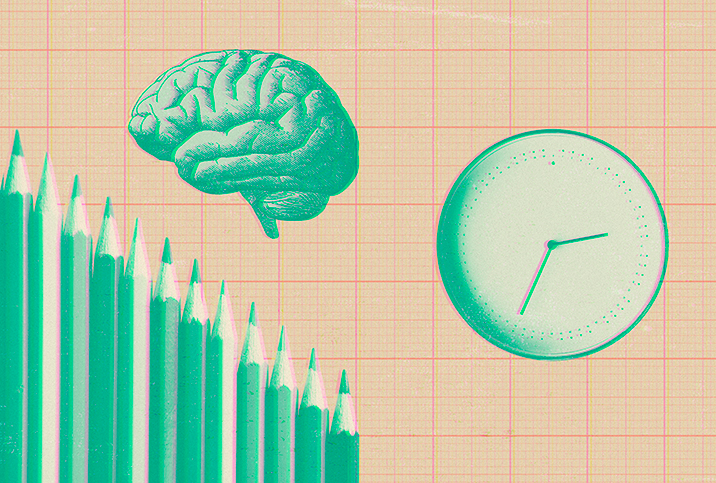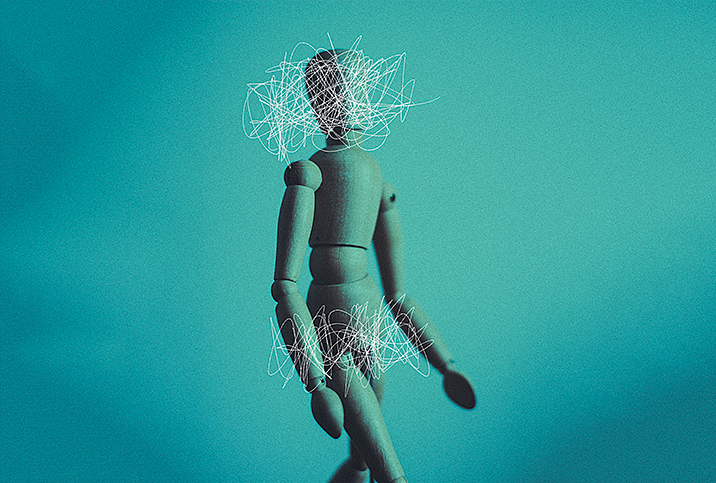How Does ADHD Affect Your Sexual and Overall Health?

Attention-deficit/hyperactivity disorder (ADHD) is becoming more prevalent due to improved education and diagnostic processes, which allow medical professionals to determine its presence more easily.
A research paper published in September 2021 described how ADHD occurs in 5.9 percent of young people and 2.5 percent of adults. Though it was first documented in 1775 by a German physician, the condition is only now receiving widespread recognition.
This is partly due to better diagnosis processes and because of the clinical understanding of how the condition can cause serious social, financial and health outcomes, which has prompted more research and diagnostic efforts. Further research published in 2021 suggested early treatment and education can prevent many serious outcomes.
The hallmark of attention-deficit/hyperactivity disorder is an interest-driven nervous system. This means people with ADHD have deficits in their executive functions—memory, cognitive flexibility, inhibition—that make it difficult to complete tasks that don't interest them. People with ADHD want to take care of essential tasks, but their nervous system doesn't respond the same way as non-ADHD people when they lack interest in these tasks.
Research in the paper from September 2021 suggests various genetic, environmental and toxin exposures may increase the risks of developing attention-deficit/hyperactivity disorder. A trained clinician makes a diagnosis through an in-depth investigation of past and current symptoms and behaviors.
Let's take a closer look at the treatment options available, the various implications for your sexual health and the most important related or co-occurring conditions.
What ADHD treatment options are there?
The gold-standard treatment is stimulant medication, such as Adderall and Mydayis. Both are brand names for a combination drug of mixed amphetamine salts containing four salts of amphetamine, according to John Kruse, M.D., Ph.D., a psychiatrist and neuroscientist with expertise in ADHD based in San Francisco.
Methylphenidate (Ritalin) is also helpful but may not work as well for adults, according to research published in June 2021.
The same research indicated cognitive behavioral therapy (CBT) can be helpful in learning new skills to improve symptoms.
Other non-stimulant medications can help with ADHD. Anti-depressants and medicines that target norepinephrine may help decrease the emotional dysregulation component of ADHD. These include the anti-depressant bupropion and the selective norepinephrine reuptake inhibitor (sNRI) atomoxetine. Alpha agonists such as clonidine and guanfacine can improve overall symptoms of attention-deficit/hyperactivity disorder, too, but may cause sedation, low blood pressure, weight gain and dizziness.
In April 2019, the United States Food and Drug Administration (FDA) approved a trigeminal nerve stimulation treatment for children not taking medicine for ADHD. It is a type of noninvasive medical therapy whereby a small electrical device is placed on the forehead to prevent and relieve migraine headaches. The device can help reduce hyperactivity by emitting a low-level electrical impulse to the trigeminal nerve and initiating a calming effect.
Treatment has been shown to improve virtually all adverse outcomes of the condition. It can lead to improved outcomes, such as:
- Better school grades
- Lower rates of injury
- Reduced crime
- Fewer accidents
- Less suicidal ideation
- Fewer mental health issues
- Decreased substance use
- Lower all-cause mortality
Brain imaging also indicates that the brains of stimulant-medicated children and adults with attention-deficit/hyperactivity disorder look more like normal brains.
Despite the concern about adverse side effects of ADHD stimulant medication, research suggests these side effects are typically not severe and the benefits outweigh the risks.
ADHD and sexual health
Kruse explained many teenagers and young adults are more likely to engage in risky sexual behaviors due to ADHD symptomatology. Moreover, people with ADHD can have difficulties that extend beyond risky sexual choices.
"The ADHD tendencies of seeking out novelty, craving high levels of stimulation and getting bored quickly means that many individuals feel stifled by, and have trouble sustaining long-term relationships," Kruse said.
An August 2021 study indicated young people with ADHD are more likely to have numerous romantic partners, more sexual encounters, more unprotected sex and more romantic relational difficulties caused by emotional dysregulation. Furthermore, early intervention targeting emotional dysregulation may provide better outcomes for the sexual health of young people with ADHD.
ADHD can impair sexual performance, too. One paper indicated that males identified with premature ejaculation (PE) are more likely to also have ADHD compared to those without PE.
Interestingly, a review published in 1996 that looked into the evolutionary perspective of ADHD suggested the nature of the condition may indeed enhance sexual desire, which has benefits in propagating the human species.
Our original hunter-gather ancestors may have benefited from being more ADHD-like because it allowed them to meet more people, try new things, go to new places and discover more survival techniques. These behaviors perhaps led to increased sexual encounters.
The researchers concluded that attention-deficit/hyperactivity disorder may have existed because evolution favors genes that allow enhanced sexual activity and novelty-seeking.
Related and co-occurring conditions
Kruse said a research paper published in Neuroscience and Behavioral Reviews might be one of the best sources of information regarding the causes, treatments, complications and related conditions of ADHD. The review mentions the following related or co-occurring conditions that may be linked with attention-deficit/hyperactivity disorder.
Although these conditions are linked, it doesn't mean there is a causative relationship. Kruse explained that genetic factors may explain why these conditions co-occur with ADHD; however, more research is needed to understand these links better.
Here are some of the conditions that co-occur with ADHD:
- Allergies and asthma
- Autoimmune disease
- Autism spectrum disorder
- Epilepsy
- Eye problems such as vision deficits, lazy eye and astigmatism
- Increased incidence of sexually transmitted infections and diseases
- Mental health issues such as OCD, anxiety, depression, bipolar, emotional reactivity, substance use disorder and suicide
- Metabolic issues such as high blood pressure, diabetes, obesity and high cholesterol
- Premature death and accidental injuries
- Sleep disorders
- Testicular dysfunction
Attention-deficit/hyperactivity disorder is a complex disorder, and because it can be caused by multiple factors, it’s difficult to discern an exact cause.
Environmental factors, such as smoking tobacco during pregnancy and during breastfeeding, may contribute to ADHD. Genetics, too, can play a part as ADHD has long been recognized to run in families.
Other contributing factors include bacterial meningitis, a disease that’s spread through food. Another related condition is encephalitis, an inflammation in the brain due to an autoimmune response or infection.


















